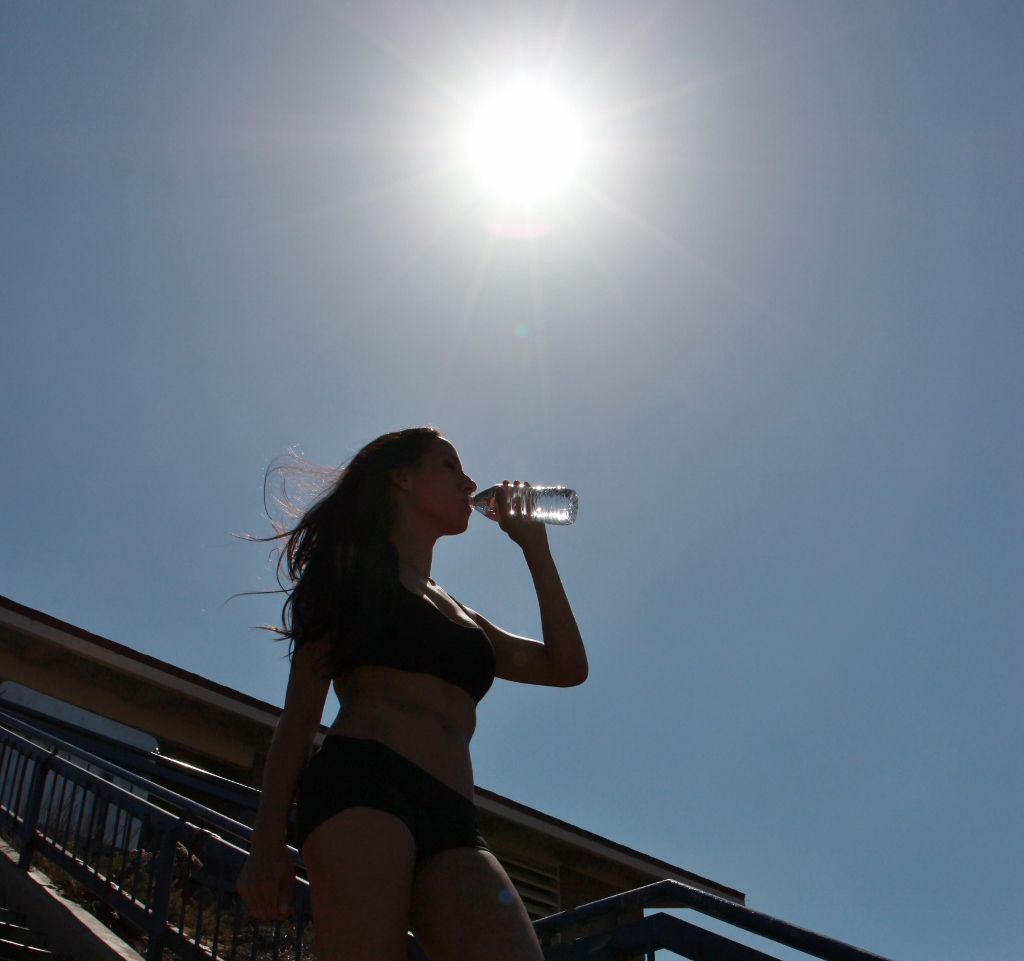Debbie J., MS, RD contributed this article –
1. Eight glasses of water per day may not be right for you!
The “eight 8 ounce glasses of water per day” recommendation, originating sometime in the last century, is without scientific evidence! This myth has been debunked in recent studies, indicating that needs are somewhere in the range of 6-12 glasses of fluid per day.
2. You can hydrate yourself with most any beverage.
Most beverages are over 95% water. Good news! From vegetable juice and skim milk to soft drinks and coffee, drinks all have an aqueous base with actually small amounts of protein, sugars, fats and flavorings. Concentrated beverages, nectars, liquor (sorry), fruit juice and milkshakes provide less water.
3. “Pure” water doesn’t exist in nature.
No water source is 100% H20. Even the most pristine sources, such as untouched snow that melts, have minerals and minute contaminants from the atmosphere. And if it did exist (distilled water comes pretty close), it wouldn’t be ideal for your body, anyways.
4. It’s human nature to prefer sweet, cold, beverages.
People drink more volume when beverages are cool and slightly flavored, than plain water at room temperature. Our bodies have a natural inclination to sweetness. Plus, the sugar molecules and electrolytes in sports beverages more closely match the concentration of our blood, making absorption more efficient.
5. By the time you’re thirsty, you are already, at least slightly, dehydrated.
The complex mechanism which maintains hydration in our bodies calls upon the brain to signal thirst when water is running low.
6. Dropping weight quickly means you’re losing water, NOT FAT.
As the body draws on stored energy for fuel, water is released. This can be 1-2 pounds per day! Unless you’ve started running a half-marathon each day, chances are you’re not burning the 3,500 Calories it would take to lose a pound of fat in less than 48 hours.
7. Being even slightly dehydrated can negatively affect performance.
It only takes a 1-2% drop in body weight from water loss to cause fatigue, reduced motivation and effort. The physiological effects are worse with more severe dehydration (as is common in the heat) compromising your central nervous activity, cardiovascular function and your body’s ability to control its temperature.
8. Solid foods provide 15-20% of your day’s water needs.
More if you are a big produce or soup fan, less if you snack on starchy items throughout the day. Don’t forget about all those sauces, dressings and other condiments that are water-based, too!
9. The color of your urine is a good indicator of how hydrated you are.
Pale yellow, is the hue that reflects adequate hydration with normal nutrition. A darker amber or apple juice color is indicative of dehydration, while completely clear urine may mean you’re drinking too much. If you see bright/neon yellow in the bowl, that’s probably due to a multivitamin with high doses of B-vitamins
10. Survival…
You could drink no water at all for a week and be perfectly fine, given you have enough hydration from other sources. Water is, of course, the preferred option, but as long as you’re getting sufficient fluid then the body can maintain hydration.
See our articles on WATER, SUGAR-FREE DRINKS and DIET SODA for more on fluids.
Tips for staying hydrated:
- Respond to thirst right away! Drink at least 10 swallows of a beverage when you feel thirsty.
- Keep to the population recommendation for daily fluid intake from the Institute of Medicine (IOM), which is 2.2 liters for women and 3.0 liters for men per day.
- One method to determine how much fluid you should drink is to match milliliters with Calories. If you know how many calories you eat, drink that daily number in millimeters of water. So for 2,400 Calories, drink 2,400 ml (2.4 L) of water per day. This comes from the mid-1940’s US National Academy of Sciences.
- You can’t drink what you don’t have with you, so keep a filled and reusable water bottle with you at work and in the car. Stash cups near every sink at home as a reminder to drink-up.
- Target no more than 2 pounds of weight loss per week.
- To maximize your workout, be sure to drink a cup or two of water beforehand.
- For endurance exercise, the American College of Sports Medicine (ACSM) advises starting hydration 4 hours beforehand. They also recommend including fluids with carbohydrates and electrolytes during exercise lasting more than one hour.
Learn how to effortless follow TOP TIPS and LIVING HEALTHY. CLICK HERE and SUBSCRIBE today!


Great article as much confusion about how much water is needed for the body to be hydrated properly.